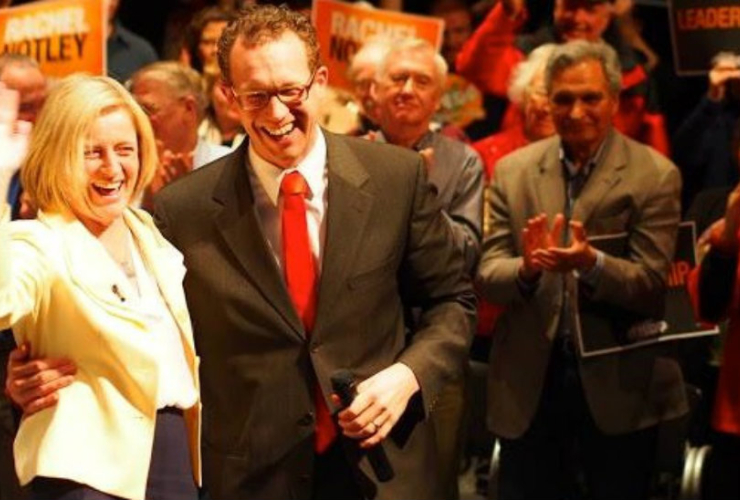CALGARY — The Alberta government aims to create thousands of jobs and reel in billions in investment by providing $500 million in royalty credits to the province's petrochemical sector.
The Petrochemicals Diversification Program announced Monday is one example of how the NDP government aims to encourage more value-added processing in Alberta — turning raw materials into more lucrative products within the province rather than shipping them elsewhere.
"We understand that to create long-term sustainable jobs, we need to diversify beyond just energy extraction into other areas of strength," said Economic Development and Trade Minister Deron Bilous.
Alberta's petrochemical industry has a tough time competing with Texas and Louisiana because of higher construction costs, he said. The program seeks to narrow that gap and attract investment.
The initiative will focus on two types of natural gas: methane and propane, which can be used in the manufacturing of fertilizers, plastics and other products.
The government said it expects 3,000 jobs during construction and 1,000 directly and indirectly once plants start up. It said there's the potential for two or three new facilities to be built in Alberta and investment of between $3 billion and $5 billion.
Ed Gibbons, who chairs Alberta's Industrial Heartland Association, said the program is good news for the Edmonton area, which is home to numerous petrochemical plants and refineries.
"We anticipate that today's announcement will provide the tipping point for investors with the scale now pointing toward Albertans' direction," said Gibbons, an Edmonton city councillor.
The credits will be paid out over three years once the projects are complete in an effort to reduce risk to government. The idea is for the petrochemical companies to trade or sell the credits to oil and natural gas producers, which can use them to offset their royalty payments to the province.
One recommendation from last week's royalty review report was to examine ways to encourage more investment in facilities that turn raw resources into more valuable products. In addition to natural gas, the expert panel also recommended looking at ways to make higher-value products out of oilsands bitumen.
The application process for the program opens this week and will close in April. Bilous said shovels could hit the ground this year.
University of Calgary economist Trevor Tombe said there are times when government subsidies are justifiable — but this isn't one of them.
"If a facility is not able to compete in the market on its own grounds, then — absent a market failure — a subsidy will actually lower GDP," he said. "It will actually harm the economy."
At a time when the province is contending with a hefty budget deficit, it's a questionable spending choice, Tombe said.
"Things like child care or education, health care, homelessness support — these are areas where subsidies can be justifiable on social policy grounds. Dollars spent on the petrochemical industry means those are dollars that can't be spent in other valuable areas."
Lauren Krugel, The Canadian Press
Note to readers: This is a corrected story. A previous version said the Alberta government estimated that the program has the potential to employ up to 3,000 people for each new facility during construction.



Comments